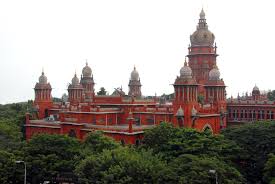The Constitutional Court needs to recognize the daily challenges faced by people with disabilities and work to eliminate these obstacles through its decisions, according to the Madras High Court.

The Madras High Court has stated that constitutional courts need to understand the challenges faced by people with disabilities and work to eliminate these obstacles through their decisions. The Court instructed the Tamil Nadu Housing Board to exempt a petitioner, an Assistant Engineer who is completely hearing and speech-impaired, from the required Tamil Language Test, citing his disability as a reason for reasonable accommodation. The Court also ordered the Board to reinstate all pending salary increments and benefits that were withheld because he did not have a Tamil Language Test certificate. Justice N. Anand Venkatesh noted that the challenges for people with disabilities go beyond just physical access; they also include deep-seated biases, stereotypes, and misconceptions that affect many areas of society. Individuals with disabilities often face significant resistance in education, employment, healthcare, and public services, which limits their full participation and inclusion. Therefore, a Constitutional Court should understand the societal, attitudinal, cultural, institutional, structural, legal, and environmental barriers that people with disabilities face every day and work to eliminate these barriers through their rulings.
The petitioner has been employed by the Board since 2014. However, since he completed his education in English, he was required to pass a Tamil language test for his position. Over the years, he has requested to be exempted from this requirement due to his impairment, arguing that taking the test, especially the Viva Voce part, was nearly impossible for him.The High Court needed to decide if the petitioner could be excused from taking the Tamil language test. Recognizing the petitioner’s complete hearing and speech impairment, the Court stated, “This case highlights the unfortunate situation faced by differently abled individuals in society. The petitioner, who has been fully hearing and speech impaired since childhood, managed to complete both school and an engineering degree, demonstrating remarkable determination to stay integrated in society.”
The Court referenced the Supreme Court ruling in Vikash Kumar v. Union Public Service Commission (2021), which stated that “not providing reasonable accommodations for individuals with specific disabilities leads to clear discrimination against them,” and this must be corrected by a Constitutional Court. “After much effort, the petitioner has been employed by the Housing Board for the past 10 years. If he loses his job now, he would be left without work due to his disability. Thus, this case is one that truly deserves an exemption,” the Bench remarked.
As a result, the Court decided, “Based on the discussion above, this Court will use its special authority under Article 226 of the Constitution of India and direct the respondent Board to exempt the petitioner from the Tamil Language Test and to issue the necessary certificate.” Therefore, the High Court approved the petition.
Cause Title: B. Vidyasagar v. The Government of Tamil Nadu & Ors. (Neutral Citation:2024:MHC:3641)
Appearance:
Petitioner: Advocate D. Muthukumar
Respondents: Special Government Pleader P. Balathandayutham; Standing Counsels V. Logesh and R. Bharanidharan








